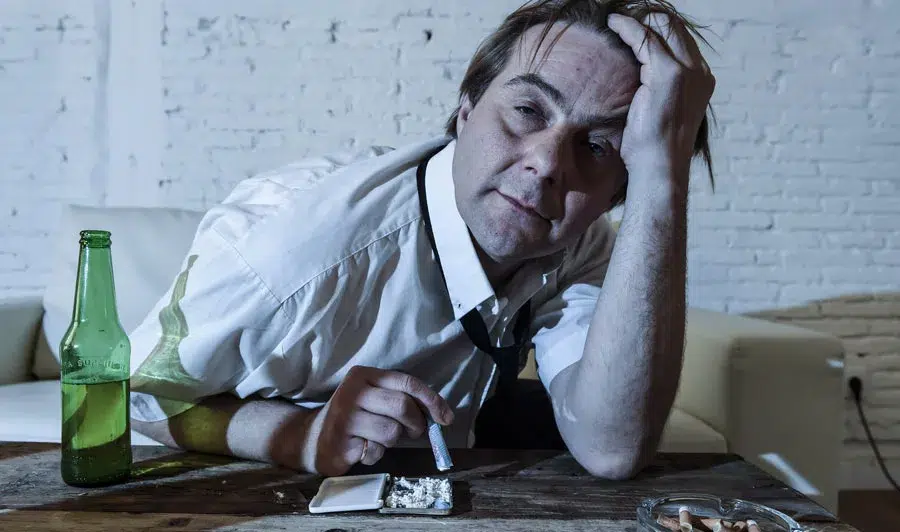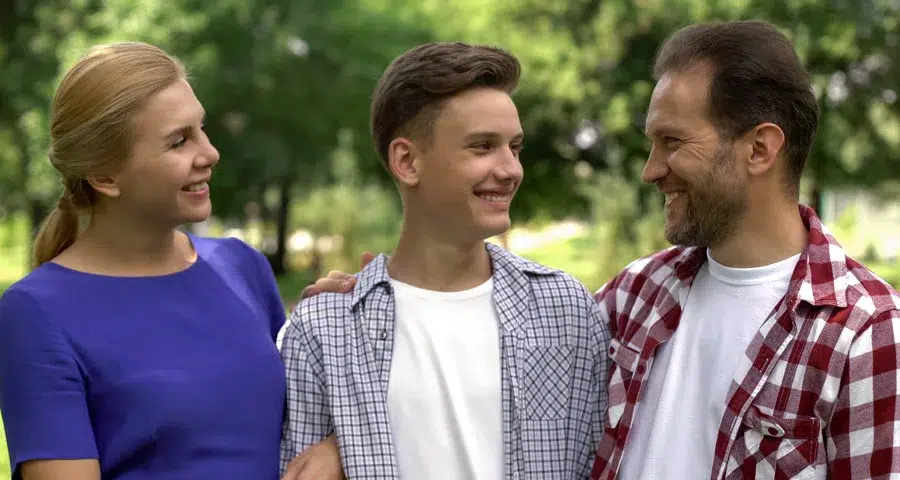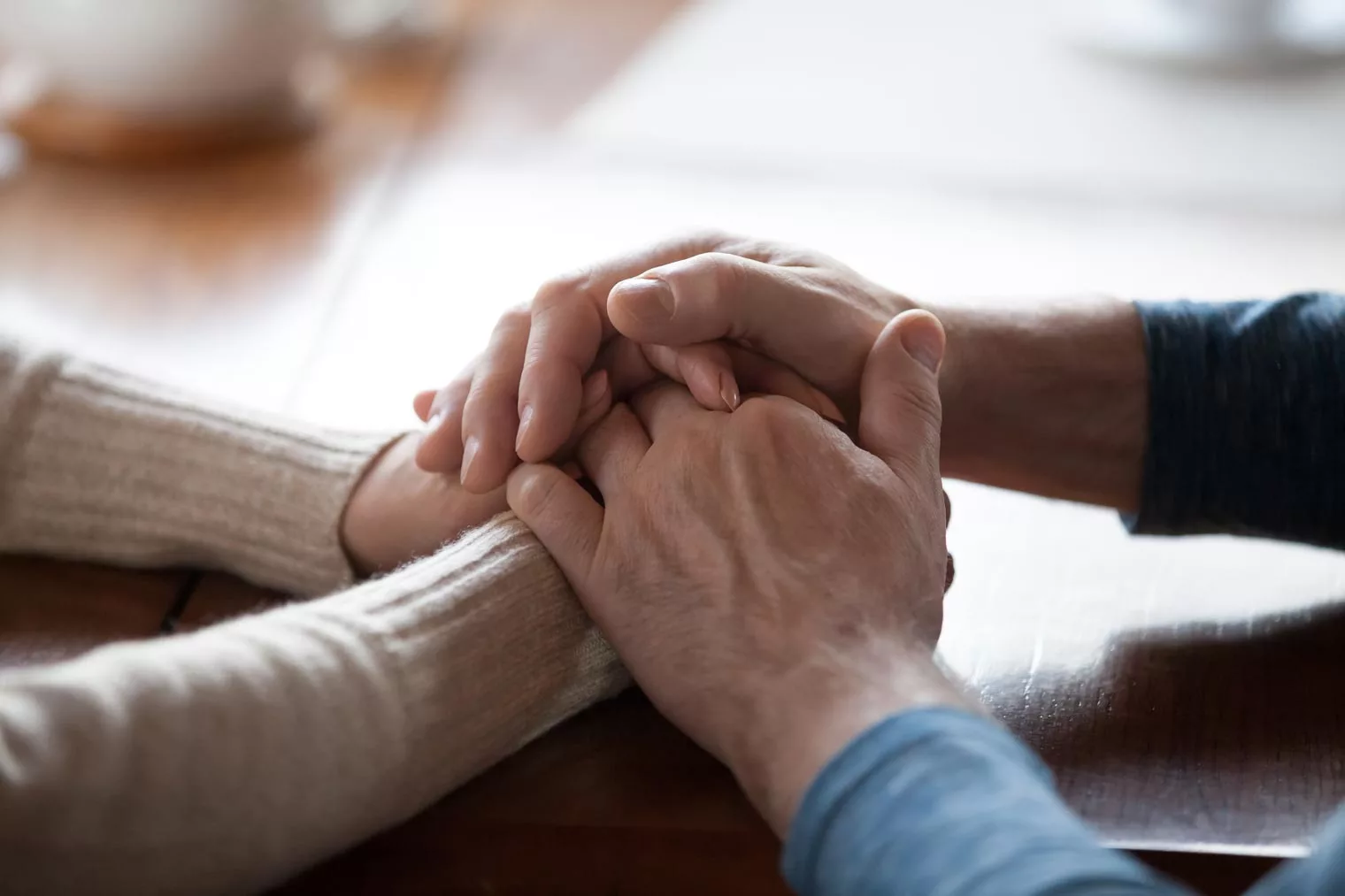
Finding Help For Families Of Addicts
How Does Addiction Harm The Family Members Of Those Struggling With Substance Abuse?
Table of Contents
Addiction can be a terrible and life-changing ordeal. With so many people dealing with addiction, it may be easy to miss the importance of family support in overcoming this issue. Drug addiction can lead to severe breaks in family cohesion, and as a result, individuals suffering from substance use disorders are isolated from their families.
This isolation is primarily because the family does not understand that addiction is a disease in several cases. This lack of understanding may be due to not having enough information on the topic available to the public domain.
Unfortunately, the families of addicts often suffer just as much as the person struggling with an alcohol or drug addiction. But how do these families find the help and support they need to be there for their loved ones, as well as themselves?
Understanding Alcohol And Drug Addiction

Before you can understand how to help yourself or someone else recover from the physical and emotional damage substance abuse can cause, you must first understand your loved one’s addiction in itself. After all, those struggling with addiction are rarely ever intentionally causing harm to themselves or others.
Rather, they are driven by an urge to continue abusing drugs or alcohol due to the physical and psychological dependence they have formed on these substances. This can make it incredibly difficult to quit their addiction, as doing so without external support often results in uncomfortable, and occasionally life-threatening mental and physical health effects.
Furthermore, many individuals who are struggling with substance abuse also have a mental illness. This can make it even harder to stop using drugs or alcohol, as these may be used to self-medicate the negative thoughts and feelings caused by their co-occurring mental condition.
24 Hour Drug Addiction Hotline
Dysfunctional Roles Found In Families Of Addiction
Once families have been exposed to addiction, they develop certain archetypes or “roles” to help them cope with the situation. Among these various roles that the members of a dysfunctional family unit may adopt are:
- The Hero or Savior
- The Lost Child
- The Mascot
- The Rescuer/Caregiver
- The Scapegoat
These dysfunctional roles do little to help a person suffering from addiction. In some cases, they may actually create the perfect environment to shelter and hide the person from the consequences of their actions.
Unfortunately, the family can only do so much, and many of these individuals fall victim to their behaviors and end up on the wrong side of the law. Proper family support can help avoid this eventuality and significantly change the script.
The Lost Child
This person tends to avoid confrontation with and will often disconnect themselves both emotionally and physically from the family. They do not drain the family’s emotional resources by ensuring that they do not create more problems, or seek support should these issues arise.
Unfortunately, these individuals usually suffer mentally and emotionally in private as a result. This can increase their own likelihood of abusing drugs or alcohol, as well as disconnecting from another loved one who may suffer with this issue themselves.
The Hero/Savior

The Hero or Savior archetype will typically try to offset the shame and disappointment the family feels about an addicted member by being the “shining star” of the unit. They are high achievers, and often feel as though they can never let the family down.
Because they are concerned with keeping up appearances, rather than provide support for their suffering loved one, they may cover up the addicted person’s problems and pretend that they do not need help. This, unfortunately, enables a very harmful pattern of codependent behaviors and further spiraling into addiction.
The Mascot
The Mascot of the dysfunctional family unit serves as the comic relief of the group and tries to ensure everyone is happy and smiling all the time. Unfortunately, this humor can sometimes be aimed at the addicted person.
Immediate Help For Substance Abuse Treatment
While the use of comedy can help others, it may become a maladaptive coping skill with time, leading the individual to become disconnected from their ability to properly acknowledge and process negative feelings. This increases not just their own likelihood of forming an addiction to drugs or alcohol, but can further enable that of a family member by making light of their habits.
The Rescuer/Caregiver
The Rescuer/Caregiver archetype is usually the person making excuses for the actions of the person suffering from addiction. Because they are masking the harm caused by the addicted individual’s behavior, they are enabling them to continue these destructive habits.
Unless they change their approach, they may hinder their addicted loved one from seeking support and overcoming their addiction. In turn, this will only cause further harm to their other family members and friends.
The Scapegoat
Within the dysfunctional family unit, The Scapegoat is often the unfortunate individual who is typically blamed for everything that goes wrong. They are “known” troublemakers, often serving as those most likely to struggle with addiction within the family.
However, these habits may stem from an internalized need to create problems, as they usually have been unwittingly placed in this role from a young age. By serving as the sole cause of blame for all of the family’s issues, they offer a distraction from the poor habits and behaviors of other members; these, of which, may also very well include drug and alcohol abuse.
Services That Can Help Families Affected By Substance Abuse

When looking for help for families of addicts, there are several services that may offer this support. These may include participating in family therapy sessions, a families of addicts support group, education services or additional resources.
Free Mental Health Assessment For The Family Members Of Addicted Individuals
Addiction is a family ordeal more often than not. Whether this involves a romantic partner’s addiction, the parents of an addicted child, or any other situation, a loved one’s drug abuse can have lasting damage on the whole family.
Each family member will deal with a person suffering from substance abuse differently. How they approach the individual who has the problem depends on how they view the situation and the person.
Prejudices rise to the surface very often in these cases, as individuals project their feelings and rationalize their actions because of the addicted person’s behavior. Unfortunately, it can be difficult for most to separate the addiction from the struggling individual.
Family forms such a close bond that the person with a substance use disorder is categorized based on their current drug use. This classification is unfair, but it happens more often than not. Families notice these changes in their loved one, and attempt to cut the individual out of the family circle to protect those that may be more vulnerable.
Addiction can stem from family behavior or feelings, and this type of family response isolates the individual and makes them resentful. For families to truly aid the person suffering from addiction, they need professional help to understand and cope with its impact on their family members.
There are many resources available for people suffering both directly and indirectly from a person’s addiction, including free mental health assessments. These can help both the addicted individual better understand the cause of their drug abuse, and their loved ones the ways in which they may be contributing to or struggling with these habits themselves.
Several online resources may offer this service. Or, you can receive a free mental health assessment today by calling the Emerald Isle hotline at 855-613-0620; our representatives will be happy to help you discover how your loved one’s struggle with addiction has impacted your well-being.
Addiction Education Services For Family Members And Friends
One of the most important resources available for families struggling with addiction are education services that can help them better understand the nature of drug and alcohol abuse. Much of the blame families heap on their suffering loved ones stems from a lack of understanding and education about the condition.
Most people assume that a person struggling with substance abuse has a choice in their decisions. However, science-based research tells us that addiction is a brain disease that makes it near-impossible to make logical decisions.
By helping families understand the differences between a choice and an involuntary compulsion, rehab centers like Emerald Isle contribute to repairing family fractures. Education can also come from peer support groups. By knowing just how complex their loved one’s addiction truly is, this may allow these individuals to better cope with and help them overcome their habits.
Having the right knowledge can help family members of an addicted loved one begin looking into addiction treatment options, and start the intervention process. This will help the addicted individual begin their recovery process in a secure and supported environment.
Support Groups For Families Affected By Addiction

There are many support groups that can help families with a member suffering from an alcohol or drug addiction. Rehab centers also create and maintain these family peer groups that help other family members understand and accept their addicted loved one.
There are several family programs geared towards helping the loved ones of addicted individuals, including Al-Anon and Nar-Anon Family Groups. These support groups are unofficial variants of Alcoholics Anonymous and Narcotics Anonymous that are geared towards providing grief recovery and addiction resources for those with an addicted loved one.
Primarily, these support groups aim to offer emotional comfort and help those affected by another person’s substance abuse to prioritize their own health. No addiction is precisely the same as another, and as such, it is a very personal struggle each person suffering from this disease, in whatever form, has to go through.
Immediate Placement for Mental Health Treatment
Learning Healthy Boundaries And Better Family Communication Skills
Family communication is a core part of ensuring that addicted individuals can reach out when they need to and get support from their family members. Communication skills teach a person how to reach out healthily and successfully.
However, communication is not just about talking. Active listening can clue a person into what their recovering family member needs. Communicating with a person in the right way encourages them to do the right thing.
However, approaching communication wrongly will drive the person away and even make them wary about asking for support in the future. In this way, communication can also help a family establish healthy boundaries.
Of course, just because a person is suffering from a disease does not excuse their poor behavior. Ensuring that they understand that harmful habits are unacceptable is a crucial move toward helping their recovery. Holding addicted people accountable for their actions can shape how they view addiction and push them to stick with their recovery plan.
The Role Of Family Therapy In Treating Drug And Alcohol Addiction
Some families do not like the idea of going to therapy because it suggests that something is wrong. Unfortunately, this mindset can have a devastating effect on someone trying to recover from addiction.
Getting professional treatment and support should not be shunned, but taken as a commitment to help a recovering person overcome their struggle with addiction. Dealing with an addicted person can lead to severe stress on some family members. As mentioned before, this could lead to family members developing archetypal roles that hinder recovery.
Therapy can help address the formation of these roles and give family members healthy alternatives to assist their loved ones. Additionally, family members’ interpersonal relationships are typically affected by their relation to the addicted person.
Spouses and children who form the extended family may suffer because of their relationship. Coping with this may require family therapy. It is impossible to save someone if struggling on one’s own. Family therapy offers the support a family needs to help their loved one.
The Role Of Interventions In Addiction Treatment

Interventions can be a valuable tool if executed properly. Unfortunately, many interventions conducted without professional support are unsuccessful, often leading to recriminations and family disputes. Ideally, a family should contact an intervention specialist to plan these conversations so that they do not alienate their loved one.
Interventions can be aggressive, which is why each family member should be present to show that they really care about the addicted person. The family forms a core part of an intervention, but they are not the only people that should be welcome.
An addicted person’s close personal circle, such as their friends or romantic partners, might also help them see the error of their ways and should be welcomed into the intervention as well. It is tempting to think about doing an intervention without a trained professional since it requires less scheduling.
However, a bad intervention can drive an addicted person deeper into their addiction. The intervention involves family members and loved ones confronting the individual about their behavior and pointing out how their lives are being ruined.
It is vital to understand that this is not about pushing blame on an addicted person but about showing them the error of their ways in a supportive manner. Trained professionals can moderate this to create a more conducive environment for the addicted person to deal with their problem.
24 Hour Addiction Treatment Hotline
Find Addiction Treatment And Recovery Support Services For Your Family At Emerald Isle
If you are looking for professional support to address your loved one’s addiction, and start their recovery process as a family unit, Emerald Isle is here to help. Our recovery program was established to help both recovering persons and their families overcome addiction together.
With professionally trained staff and counselors, we can offer family therapy or advice to help you help your loved ones. If you have someone in your family that you think needs help with their addiction, we can help both you and your loved one achieve a successful recovery. We are always happy to give families a lifeline. Contact us today to find out more!








